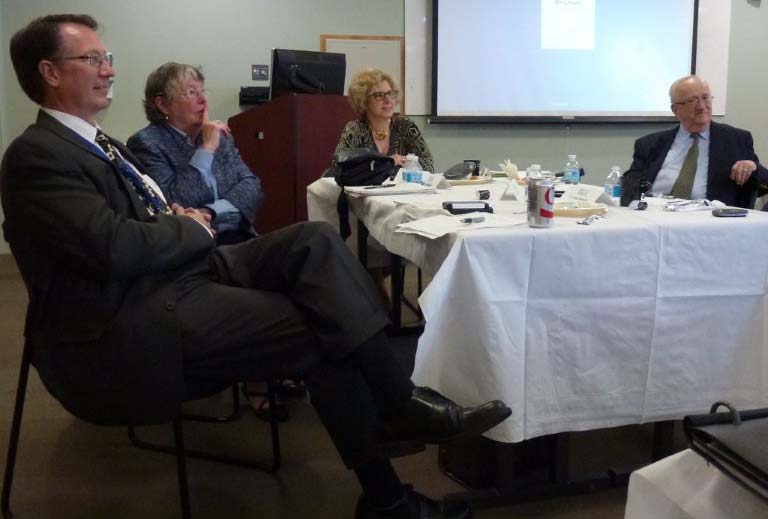Closure Continues in Harrisburg to Promote Statewide End-of-Life Policy Change
Date Created: August 27, 2015 03:03 PM

Harrisburg completed the six‐session Closure series in March, but the group held a first‐ever seventh session on April 20 focused on advancing state‐wide policy on palliative and end‐of‐life care. The group invited Nancy Zionts to provide an overview of successful initiatives in other states and weigh in on policy recommendations developed as part of the group’s Closure community action plan.
Zionts organized and moderated a panel discussion on the recommendations along with David Kelley, MD, MPA, chief medical officer for the Pennsylvania Department of Human Services; Judith Black, MD, MHA, medical director for senior markets at Highmark and an executive committee member of the National Physician Orders for Life‐Sustaining Treatment (POLST) Paradigm Task Force; and Ann Torregrossa, executive director of the Pennsylvania Health Funders Collaborative. Harrisburg philanthropist Bob Haigh facilitated the panel discussion.
The Harrisburg group’s policy recommendations included promoting the use of POLST forms to document treatment preferences of seriously ill patients, encouraging pain management and palliative care, and transforming medical education so that burgeoning healthcare professionals are equipped to confront end‐of‐life issues. The Harrisburg group will continue meeting to advance their end‐of‐life priorities.
“While all of the panelists agreed that changing medical education is crucial, we challenged the Harrisburg group to not stop there,” Zionts says. “Any graduate student who may care for those dealing with a life‐threating or life‐limiting illness—including those in nursing, pharmacy, and social work — should learn how to facilitate these conversations. That interdisciplinary approach is a key component of our new Fellowship on Death and Dying. We feel that there should also be continuing education opportunities for providers, so professionals are updating their learning about patient‐centered end‐of-life care throughout their careers.”